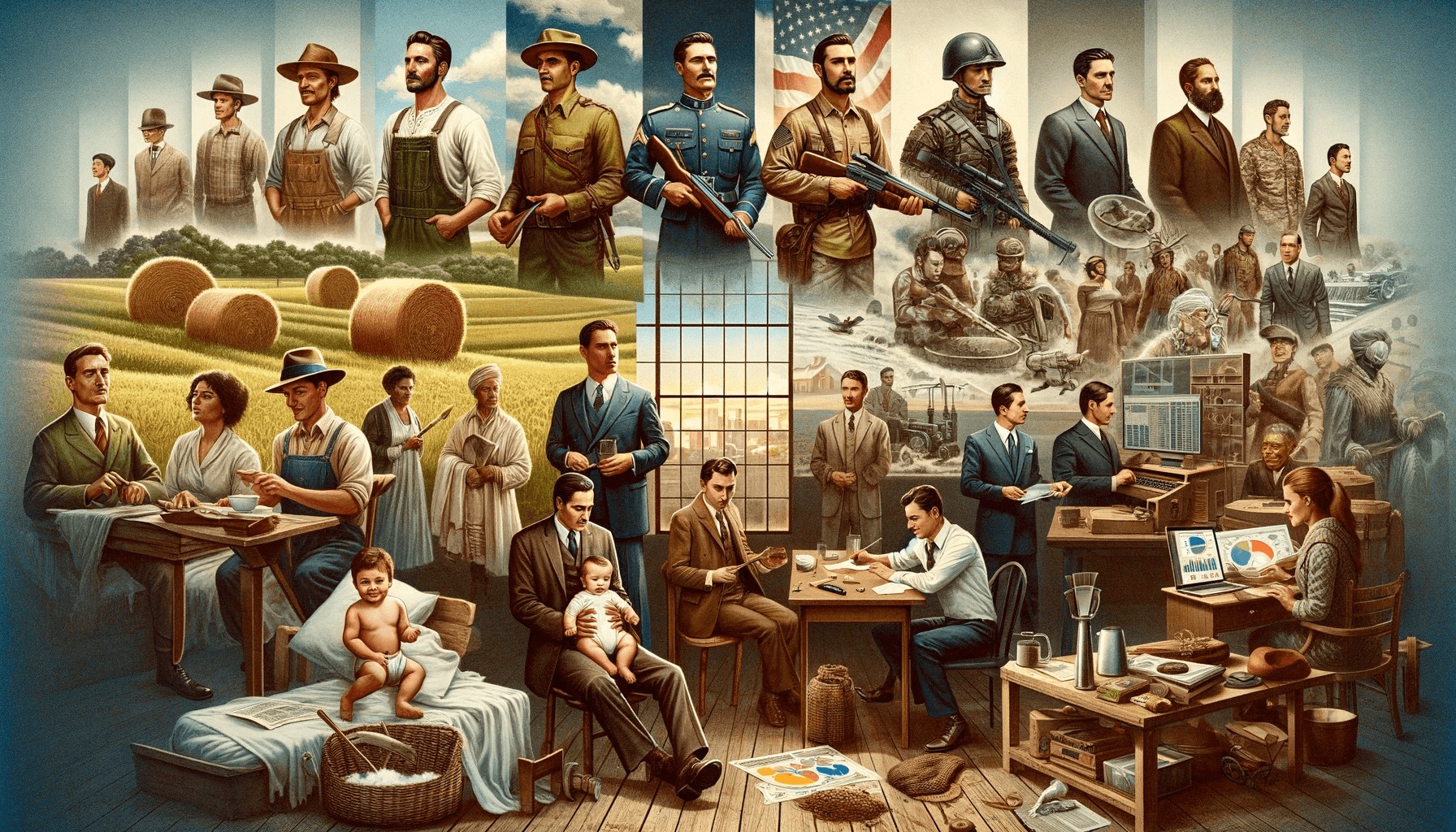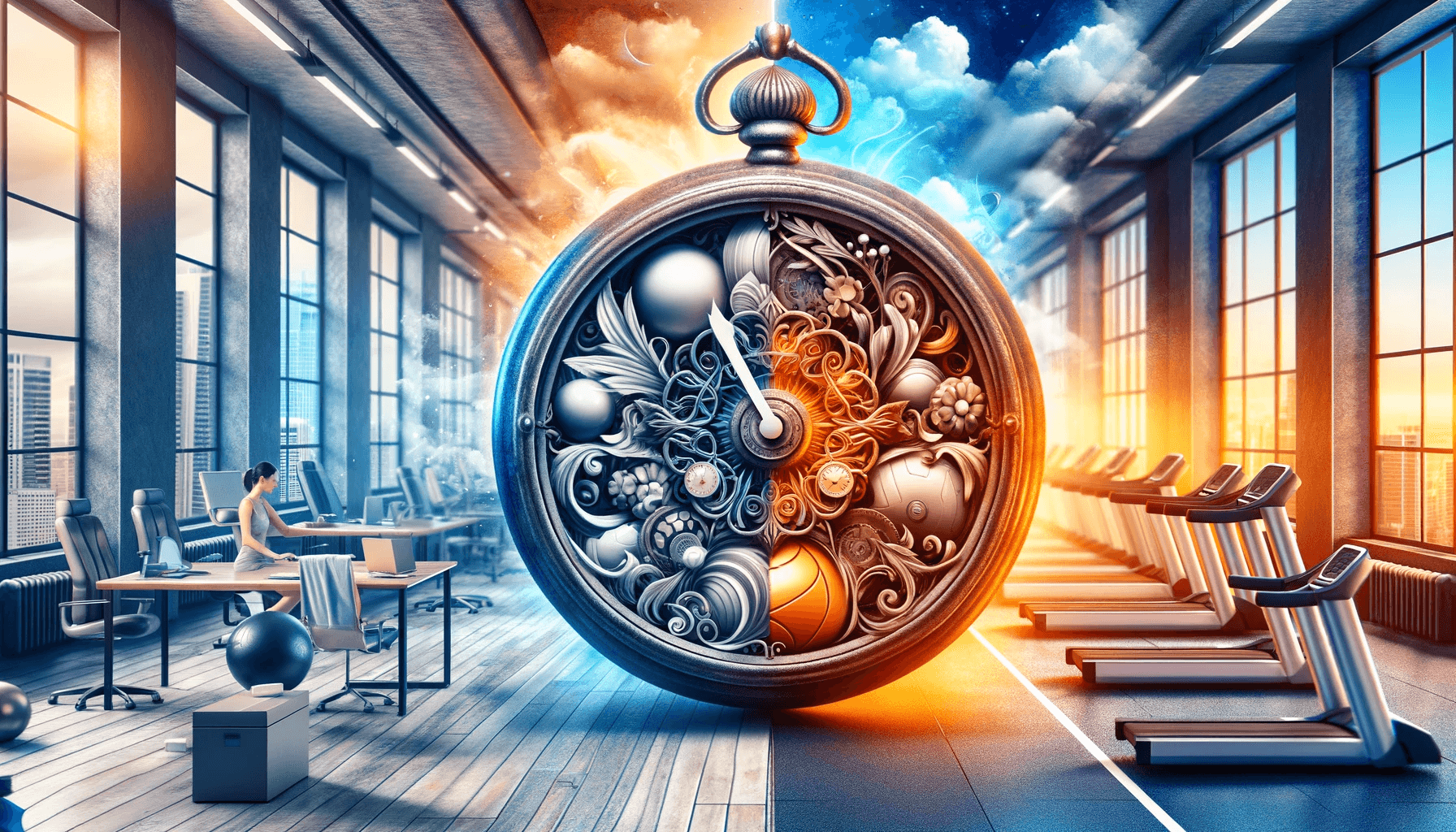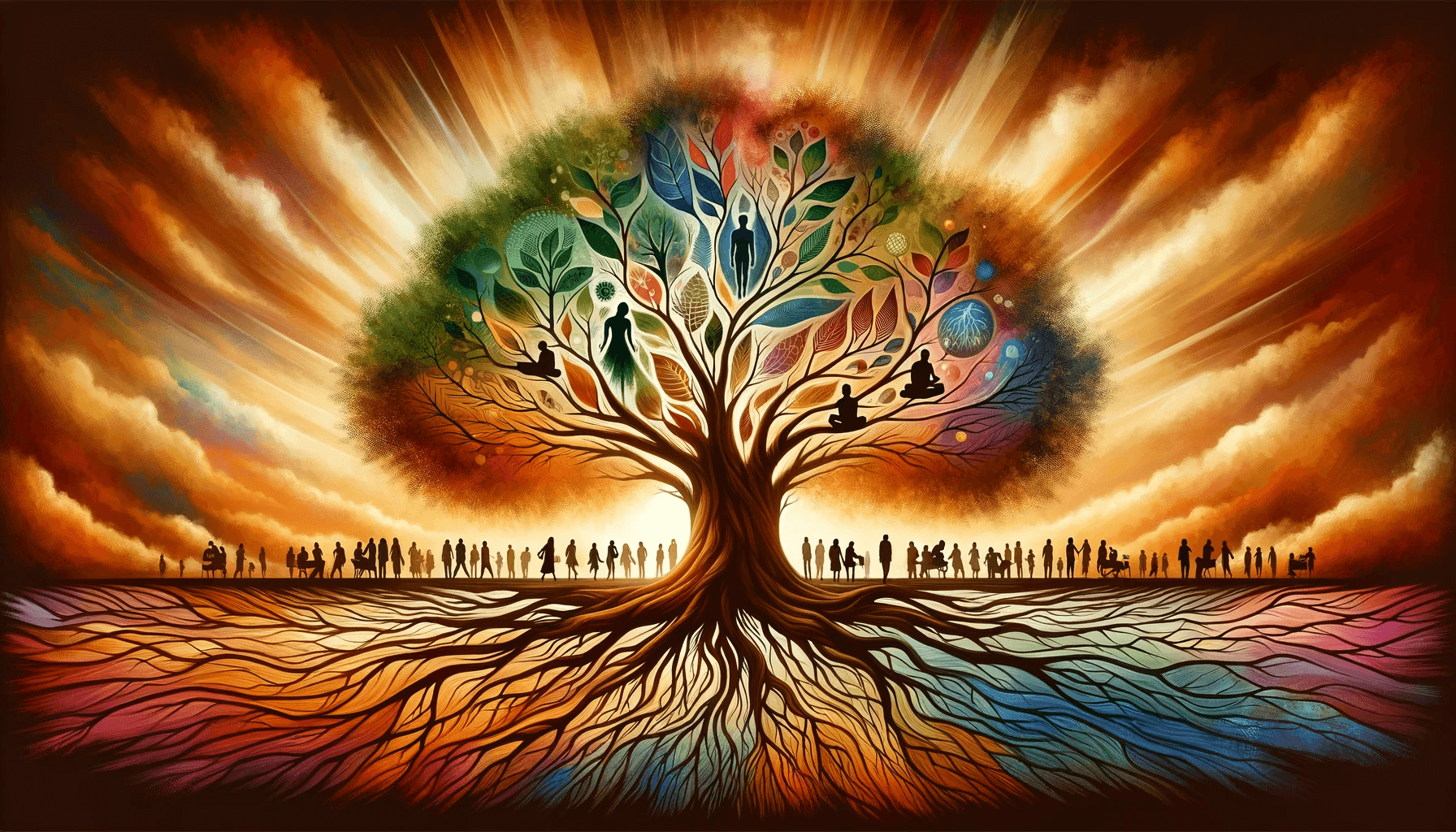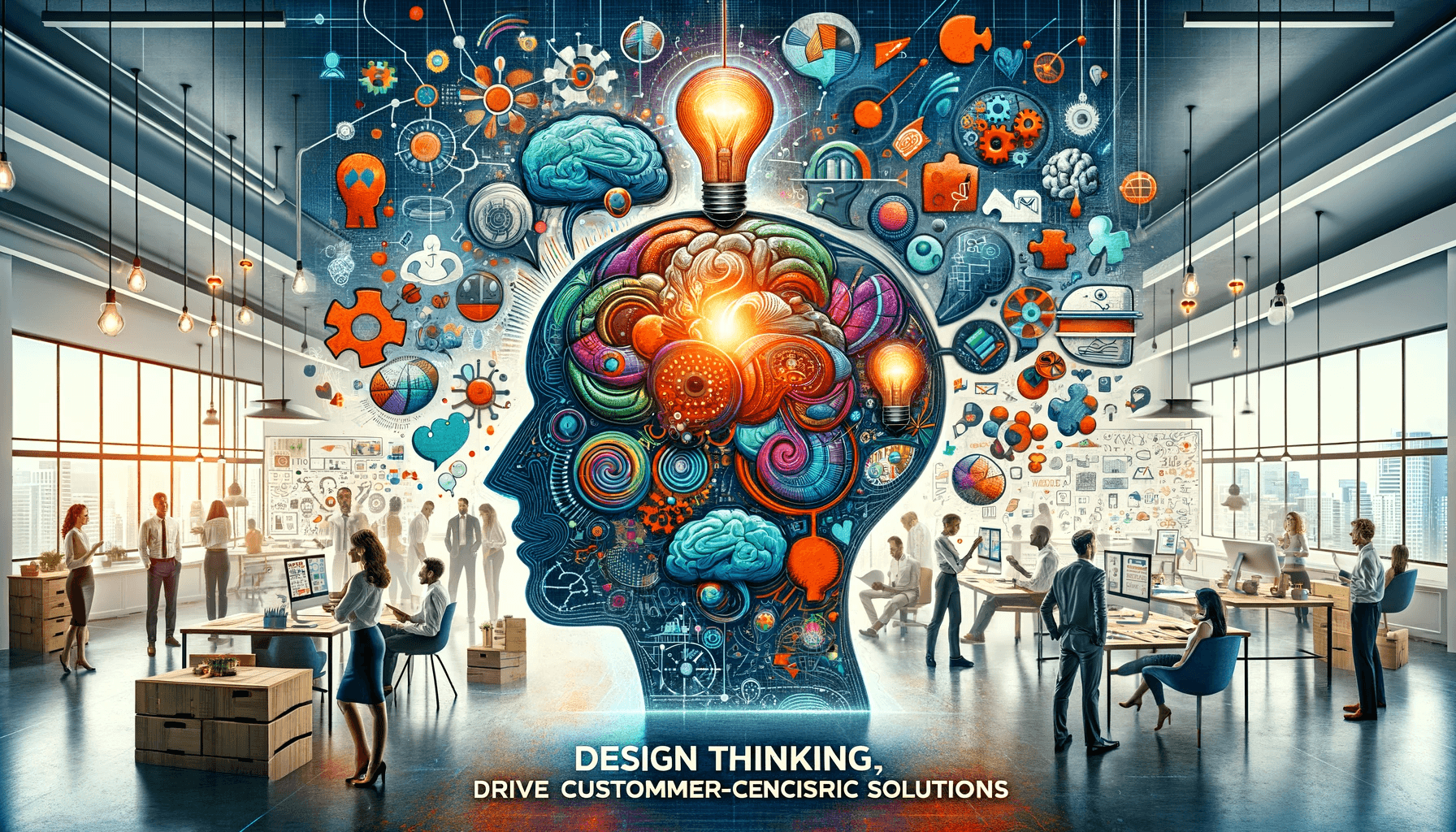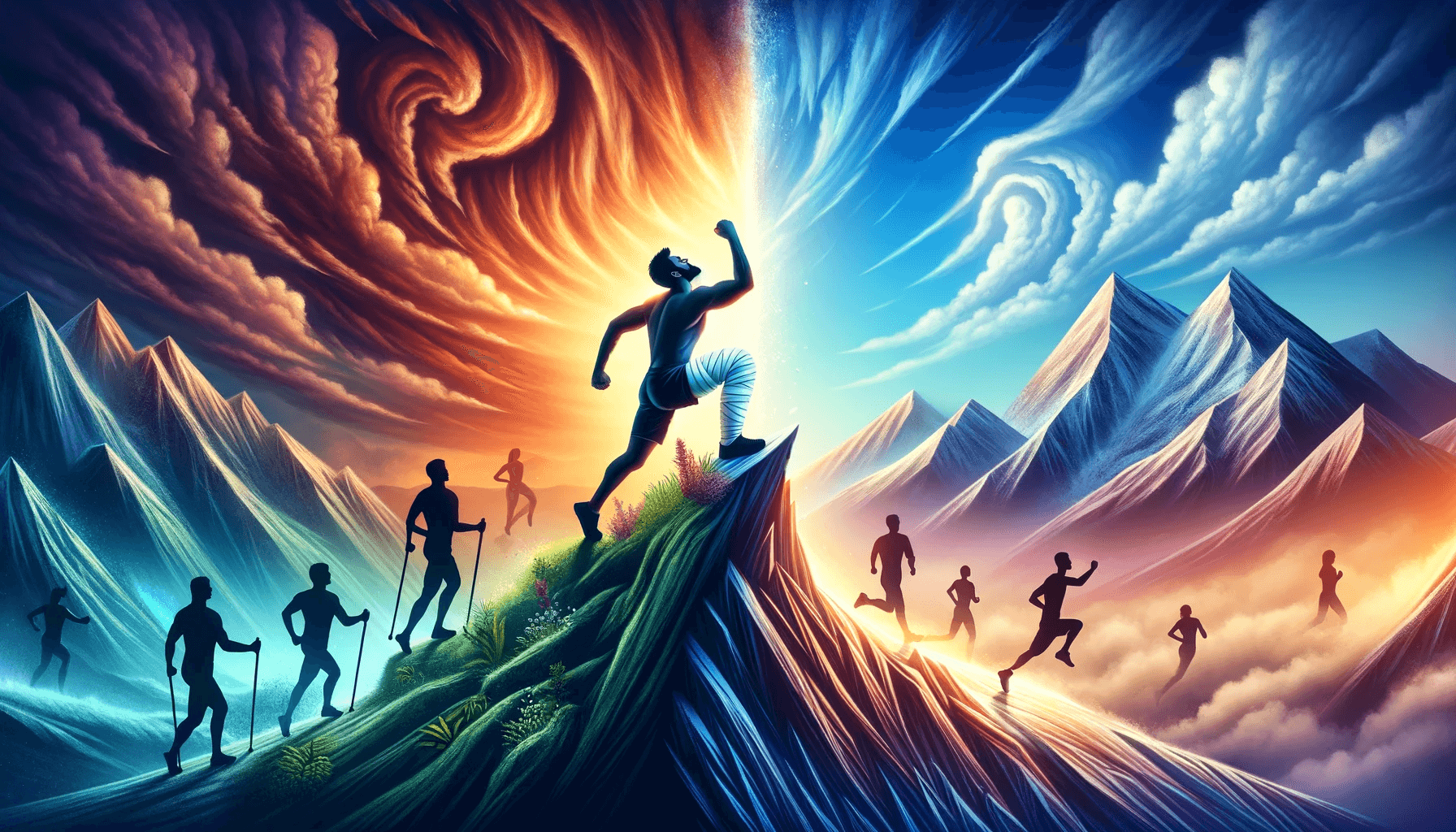Sponsor Alpha Xtra Boost
Table of Contents
Introduction to Traditional Male Roles
Societal expectations of gender roles have long been ingrained in our culture, shaping the way we view ourselves and each other. Traditional male roles, in particular, have been deeply rooted in history, impacting men’s lives in various ways. This article will critically examine these roles, exploring their historical context, societal expectations, and impact on men’s mental health. Furthermore, we will discuss the importance of breaking free from these traditional roles and embracing a more inclusive and fluid understanding of masculinity.
Historical Context of Traditional Male Roles
The historical context of traditional male roles is shaped by a complex interplay of social, economic, cultural, and political factors. These roles have evolved, influenced by changing societal structures, norms, and values. Here’s an overview of how traditional male roles have developed in various historical contexts:
- Prehistoric and Tribal Societies: In hunter-gatherer societies, men typically assumed the roles of hunters and protectors. Their physical strength was crucial for survival, as they were responsible for acquiring food and safeguarding the group from predators or enemy tribes.
- Agricultural Societies: With the advent of agriculture, men’s roles expanded to include farming and land cultivation. Ownership and inheritance of land often became a male prerogative, reinforcing men as providers and heads of households.
- Feudal and Medieval Societies: In these societies, class and occupation often defined male roles. The nobility had distinct expectations, such as leadership in warfare and governance, while peasants’ roles were primarily in agricultural labor. The concept of chivalry also emerged, idealizing masculine virtues like bravery, honor, and gallantry.
- Industrial Revolution: This period marked a significant shift. Men increasingly worked in factories, mines, and later in offices, reinforcing men’s role as the primary breadwinners. The public sphere became predominantly male, while women were generally confined to the domestic sphere.
- 20th Century – Wars and Social Changes: World Wars I and II profoundly affected male roles. Men were expected to serve as soldiers, further entrenching the association of masculinity with bravery and sacrifice. Post-war periods saw shifts in male roles, influenced by economic changes, the civil rights movement, and feminism. Men’s sole identity as breadwinners began to be questioned.
- Late 20th Century to Present: The latter part of the 20th and early 21st centuries have seen increasing challenges to traditional male roles. Movements for gender equality, changing economic structures (like the rise of dual-income households), and a broader understanding of gender and sexual identity have all contributed to a more diverse understanding of male roles. Men’s involvement in domestic life, parenting, and emotional expression is more accepted and encouraged.
- Contemporary Perspectives: There is an ongoing dialogue about masculinity and its various expressions in the contemporary context. There’s a growing recognition of the negative impact of rigid gender roles on both men and women. This has led to a more nuanced understanding of masculinity, acknowledging that traditional roles may coexist with more modern, flexible interpretations.
Understanding traditional male roles in their historical context reveals how deeply rooted these roles are in societal structures and cultural narratives. It also highlights the ongoing evolution of these roles in response to changing social dynamics.
Societal Expectations of Traditional Male Roles
Societal expectations of traditional male roles often encompass a set of culturally and historically influenced norms and standards that define how men are commonly expected to behave and what roles they should fulfill in society. These expectations can vary widely across different cultures and historical periods, but some common themes are often present:
- Provider Role: Traditionally, men have been expected to be the primary breadwinners for their families. This involves not only earning money but also being responsible for the family’s financial well-being.
- Protector Role: Men are often expected to protect their family and community. This includes physical protection and being seen as a source of security and stability.
- Emotional Strength: Men are expected to exhibit emotional strength and resilience. This often translates into a societal norm where showing vulnerability or emotional sensitivity is considered a sign of weakness.
- Decision Maker: Men are often expected to be the primary decision-makers in their households and broader societal contexts. This includes making major financial, familial, and life decisions.
- Physical Strength and Masculinity: Men commonly expect to be physically strong and embody traditional masculine traits such as assertiveness, competitiveness, and self-reliance.
- Avoidance of Traditionally Feminine Activities: Traditional male roles often discourage men from engaging in activities or behaviors considered feminine, such as showing too much emotion, performing domestic chores, or engaging in certain forms of artistic expression.
- Sexual Expectations: Men are often subject to expectations regarding their sexual behavior and prowess. This can include pressure to be sexually active, dominant, or experienced.
It’s important to note that these societal expectations are changing and evolving, and there is increasing recognition of the diversity of male experiences and identities. The concept of masculinity is becoming more inclusive, allowing for a broader range of expressions and roles.
The Impact of Traditional Male Roles on Men’s Mental Health
The impact of traditional male roles on men’s mental health cannot be overstated. The pressure to meet societal expectations can lead to a multitude of issues, including anxiety, depression, and feelings of isolation. Men may feel compelled to suppress their emotions, leading to a lack of emotional connection with others. The stigma surrounding mental health within male-dominated societies further exacerbates the problem, making it difficult for men to seek help and support. It is crucial to recognize the detrimental effects of these traditional roles and work towards creating a more nurturing and supportive environment for men’s mental health.
Breaking Free from Traditional Male Roles
Breaking free from traditional male roles requires consciously challenging and redefining societal expectations. Men should be encouraged to explore their emotions, seek help when needed, and engage in open and honest conversations about mental health. Embracing vulnerability and expressing emotions should be seen as a sign of strength rather than weakness. Men should be free to pursue careers and passions that align with their interests and values rather than being confined to traditional gender roles. By breaking free from these expectations, men can live more fulfilling and authentic lives.
The Evolving Definition of Masculinity
As society progresses, the definition of masculinity is evolving. It is no longer limited to traditional stereotypes but encompasses a broader range of identities and expressions. Masculinity can be seen as a spectrum, allowing individuals to explore and embrace their unique qualities without conforming to societal norms. This shift towards a more inclusive understanding of masculinity allows men to redefine themselves and challenge traditional male roles. It encourages men to embrace their individuality and find empowerment on their terms.
The Role of Media in Perpetuating Traditional Male Roles
The media plays a significant role in perpetuating traditional male roles. From movies and television shows to advertisements and magazines, traditional gender norms are often reinforced. Men are portrayed as strong, dominant, and emotionally detached, while women are often depicted as dependent and submissive. These portrayals not only perpetuate harmful stereotypes but also limit the possibilities for both men and women to express their authentic selves. Media representations must become more diverse and inclusive, showcasing a wide range of male experiences and challenging traditional male roles.
Challenging Traditional Male Roles in Relationships and Parenting
Traditional male roles have a profound impact on relationships and parenting dynamics. Men are often expected to be the primary providers and decision-makers, while women are expected to take on nurturing and domestic roles. These rigid expectations can strain relationships and limit the freedom of both partners to express themselves fully. Challenging traditional male relationship roles involves fostering equality, open communication, and shared responsibilities. Men should be encouraged to actively participate in parenting actively, nurturing emotional connections with their children, and breaking free from the notion that being sensitive or vulnerable is a sign of weakness.
The Importance of Allyship in Dismantling Traditional Male Roles
Dismantling traditional male roles requires collective effort and allyship. Individuals of all genders need to work together to challenge and redefine societal expectations. Women can play a vital role in supporting and encouraging men to break free from traditional roles by promoting emotional openness and rejecting toxic masculinity. Men can also be allies to each other, creating safe spaces for vulnerability and open dialogue. By fostering a culture of allyship, we can create a more inclusive and supportive society that acknowledges individuals’ diverse experiences and identities.
Conclusion: Embracing a More Inclusive and Fluid Understanding of Masculinity
Traditional male roles have shaped our society for centuries, impacting men’s lives significantly. However, it is crucial to critically examine these roles, challenge societal expectations, and embrace a more inclusive and fluid understanding of masculinity. Breaking free from traditional male roles requires a collective effort to redefine societal norms, encourage emotional openness, and dismantle harmful stereotypes. By doing so, we can create a society where men can live authentically, express their emotions, and prioritize their mental health. Let us strive towards a future where gender roles are no longer restrictive, and all individuals can thrive.
